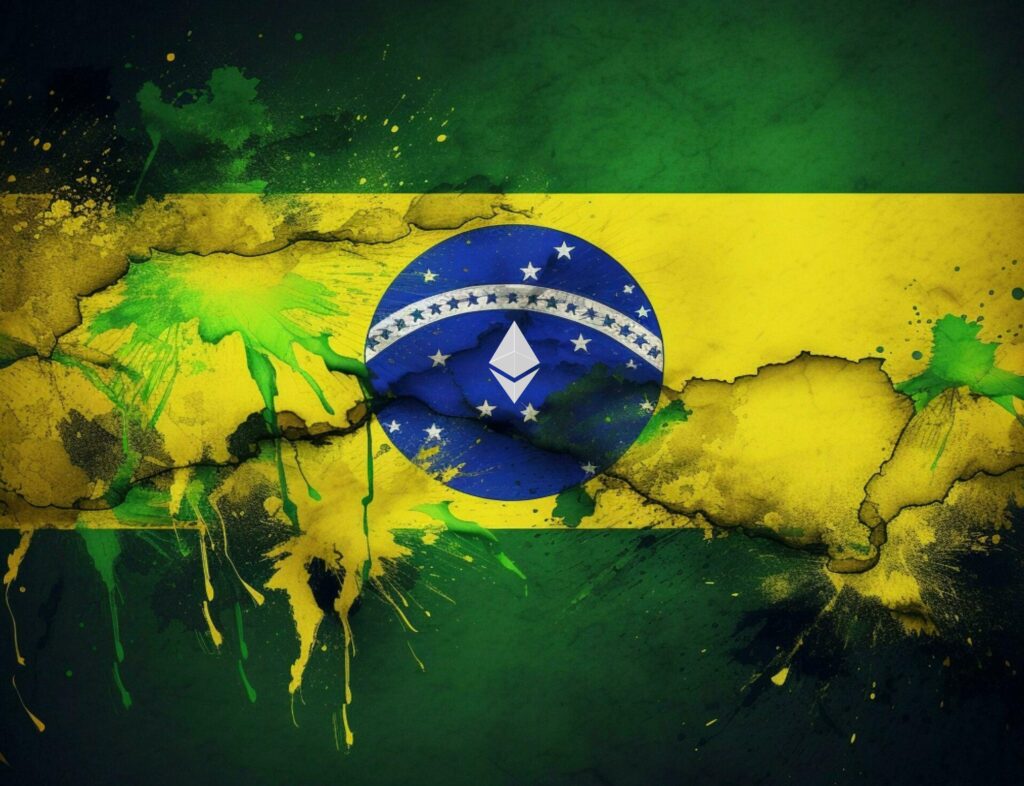
Brazil’s crypto sector currently operates without a specific regulatory framework, but new measures are expected soon to provide investors with clarity and security. The country has experienced a notable increase in businesses accepting crypto as payment, from small shops to large corporations. For context, a recent report by Triple-A places Argentina and Brazil among the top ten countries globally for crypto adoption per capita… Brazil ranks seventh worldwide, with nearly 38 million people using digital assets.
Several platforms for trading cryptocurrencies have emerged in Brazil, making it easy and secure for locals to buy and sell crypto. Examples include Mercado Bitcoin, Foxbit, BityPreco, and NovaDAX. According to HedgewithCrypto, Brazil ranked among the top 3 countries for crypto adoption last year, scoring 6.81/10. Researchers also noted a 355% increase in average monthly searches for cryptocurrencies, with over 3,300 articles published in 2023. Interestingly, in 2020, Brazil had no crypto ATMs, but by 2023, there were 25… However, many have since closed, and according to CoinAtmRadar, the current number stands at 9.
The latest Chainalysis Crypto Adoption Index ranked Brazil 9th, ahead of countries like Thailand, China, Turkey, and the United Kingdom. Currently, crypto companies in Brazil face capital gains tax based on transaction volumes: a 15% rate for amounts under 5 million reais (about $900,000), 17.5% for amounts between 5 and 10 million reais, and 22.5% for amounts over 30 million reais. In April, a bill was proposed that could reshape crypto taxation, potentially classifying cryptocurrencies as investments similar to stocks and other capital assets with variable rates.
What does the new tax proposal involve? It suggests a fixed 15% tax rate on Bitcoin and other cryptocurrencies. While this change seems to simplify crypto tax by aligning it with traditional investments, detailed information is still lacking. There could be further details that impose new limits, and it’s unclear if investors will be exempt from taxes on small transactions. The law is expected to take effect in 2025.
“Surprisingly, South American countries have higher per capita cryptocurrency adoption than much larger developed economies like the United States and the European Union. Despite being underserved by the traditional financial system, Latin America boasts a young, tech-savvy population. Many citizens even find remote work with companies in the U.S. and the EU”.
–Bitfinex Report.

“We’re excited to officially launch our localized platform and services in Brazil, which represents the largest cryptocurrency market in Latin America. Our exchange now offers BRL rails, deep liquidity, tools, security, and transparency that Brazilian traders want. Our OKX Wallet provides simplified access to DeFi, NFTs, dApps, and more. We look forward to driving innovation and growth of the Web3 and crypto economy with millions of users as the market matures in Brazil”.
–Hong Fang, OKX’s CEO: one of the world’s leading exchanges, which launched in Brazil in November 2023.
To wrap up, let’s highlight recent news in crypto mining related to Brazil. After a Bitcoin halving, miners often rush to adjust their expenses. Paraguay had been a hotspot for mining projects, but rising electricity costs are changing that. As a result, companies like Penguin Group are relocating their operations, making Brazil an increasingly important destination. Recently, Penguin executives announced a 400-megawatt power deal in Brazil, securing a new energy source for their data centers.
“In the past 20 years, I’ve frequently flown out to promote my country, attract investment, and boost the economy. Today, I’m taking my first flight away from it: I’m heading to Brazil to finalize a new energy deal that will support 150 jobs in Paraguay”.
–Bruno Vaccotti, Director of Public Affairs at Penguin Group.
Brazil has become a major hub for crypto adoption in Latin America, driven by an increasing number of merchants accepting crypto and a growing infrastructure that includes local exchanges and ATMs. Although the country currently lacks a specific regulatory framework, new laws are expected to bring more clarity and security for investors. The recent focus on crypto mining also highlights Brazil’s attractiveness as an investment destination, especially given the difficulties faced by neighboring countries such as Paraguay. Overall, the Brazilian crypto market is well-positioned for continued growth.
Subscribe to the Purse.io Newsletter so you never miss our posts on Blockchain, e-commerce, and cryptocurrencies. Be sure to follow us on social media to stay informed about Hamza.biz, the first Web3 Marketplace powered by the Loadpipe protocol and the LOAD token. This innovative solution is set to elevate e-commerce with low gas fees and trading freedom. Click here to check out the roadmap for Hamza.
- bitcoin halving (1)
- Blockchain (92)
- brazil (7)
- brazilian market (1)
- crypto adoption (25)
- crypto mining (7)
- cryptocurrency (33)
- dapps (6)
- def (1)
- digital assets (13)
- exchanges (9)
- financial regulation (2)
- financial sector (2)
- Hamza.biz (65)
- investment (3)
- loadpipe protocol (26)
- nft (9)
- OKX (2)
- paraguay (2)
- penguin group (1)
- purse.io (27)
- tax proposal (1)
- Web3 (62)